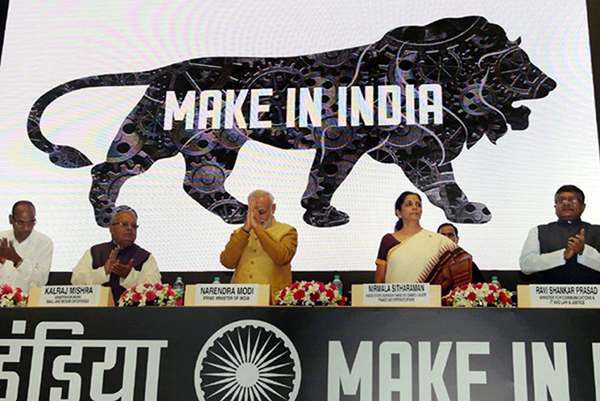In an effort to encourage Indian firms to produce high-quality weaponry for the armed forces, the Defence Acquisition Council (DAC), headed by defence minister Rajnath Singh, decided on 14 January, to restrict the purchase of three major weapon systems only to local manufacturers.
During the short meeting, held ‘virtually,’ as the defence minister was down with Covid, the issue of procurement under Buy (Global) category came up for discussion during the DAC meeting. It was decided to firmly push indigenisation or as the government said, Atmanirbharata. The Army’s plan to buy Quick Reaction Surface to Air Missiles (QR SAM) has been turned from a Buy Global to a Buy Indian order. This means that only Indian firms will be able to supply the three regiments of QR SAMs to the Army’s air-defence system.
A similar decision has been taken for the Articulated All Terrain Vehicles which can be used in high-altitude areas. All 18 of them will be purchased from Indian vendors. This was initially a Buy Global case. The decision about light machine guns for the Army followed a similar pattern. This will also be Buy and Make Indian.
Under the Buy (Global) category, procurement is done directly from the foreign Original Equipment Manufacturer (OEM). The decision taken will not impact deals already inked under the Buy (Global) route, those being pursued under the government-to-government route and the Foreign Military sales (FMS) route with the US.
Foreign OEMs are now welcome to tie up with Indian firms or set up their own factories to not only supply the Indian military but also for other countries.
The defence services were earlier asked to prepare a list of procurement plans from abroad that could be replaced by indigenous items. Accordingly, each service — Army, Navy, Air Force and Coast Guard — had come forward with a list of such items.
The items in Question
One mega deal in this list was the procurement of 14 twin-engine helicopters, for which French firm Airbus was the prime contender. A decision has been taken to shelve this project in favour of the naval utility helicopter (NUH) of the state-run Hindustan Aeronautics Limited (HAL). However, it was not immediately clear what happened to the $3 billion project of the Navy to procure 111 new helicopters of the same class (that is, NUHs).
The Army will now go in for indigenous ATVs that will come handy in both the desert and mountains.
A project to acquire short range missiles from abroad has also been shelved in favour of the Make in India route.
Push for Make in India
Prime Minister Narendra Modi and Defence Minister Rajnath Singh have been emphasising on indigenous defence products. These issues came up for discussion multiple times and the forces were also amenable to this, since alternate items were already available domestically and foreign companies were willing to set up facilities in the country.
Singh, in his talks with his Russian counterpart Sergei Shoigu, made it clear that the way forward was Make in India. Similarly, during his meeting with French Defence Minister Florence Parly, Singh had called on French firms to “either collaborate with Indian companies or simply produce in India”.
This initiative from the government comes at a time when the Centre is coming up with the new Defence Production and Export Promotion Policy which will lay down the way ahead for strengthening defence production within the country and help in their export to friendly foreign countries.
The initiative came after Prime Minister Modi took a review meeting with the Defence Ministry officials including the then Chief of Defence Staff General Bipin Rawat where it was felt that strong measures will have to be taken to ensure that country moves firmly towards Aatmanirbhar Bharat in the defence sector. After the meeting took place, an Additional Secretary-rank officer of the Defence Ministry wrote a note to the three Services saying that “All stakeholders may take an in-principle call that no import of defence items is going forward.”


















